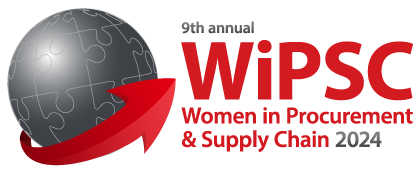In the lead up to the 7th annual Women in Procurement and Supply Chain conference 2022, Amy Rixon, Chief People Officer, from Frucor Suntory, talked to us about how to spot and nurture the next generation of supply chain and procurement leaders.
Amy Rixon
Chief People Officer
Frucor Suntory
1. What are the best ways to aid emerging leaders in developing big picture thinking to ensure improved outcomes in the critical competencies required to succeed in procurement and supply chain?
According to a Gartner Insight, women are showing an increasing representation in supply chain professional and leadership roles, but the succession talent pipeline remains a challenge. This is where emerging leaders have the best opportunity to profile themselves for opportunities and be noticed in the talent and succession pipeline for the future.
Certainly, exposure and experience in functional procurement and supply chain areas are essential, but showing an aptitude for broader leadership roles/responsibilities is even more important. The key piece of advice I'd suggest is showing a willingness to learn or putting your hand up for new initiatives, a project, a secondment, taking on an internal working group or volunteer committee. These experiences add value to leadership learning and provide exposure and visibility more broadly within your organisation. These put you in the best position to build capabilities whilst learning and growing in early career stages.
2. What are the critical skills leaders need to ensure they are job-ready when the time comes?
Learning agility, ability to solve complex problems, working collaboratively in teams, good communication and stakeholder skills – and taking on an authentic approach to your leadership style.
3. How can emerging leaders learn how to understand and apply emotional intelligence in the workplace?
Emotional intelligence starts with self-awareness and developing the ability to ask open questions, and learning active listening. A great read on this topic is Daniel Goleman. If these skills don't come 'naturally' to people, they can be practised and improved over time. So I'd argue developing EQ as part of leadership development is even more important than building expertise in your functional discipline.
4. Identifying and overcoming day-to-day challenges and taking advantage of opportunities as they arise is a big part of the role of a leader. What are some of the best ways you can teach your emerging leaders to stay alert and pay attention to changes that could lead them to advancing their careers?
Change = Opportunity. When you notice things happening in your business, whether it’s announcing a new strategy, a restructure, an acquisition, a new project, or initiative (whatever it may be) – be the first to put your hand up! Say yes to being involved, showing support, asking how you can be part of what's coming. Be open and curious to learn and willing even if you aren't sure what it means and even better if it scares you.
5. What are some of the key strategies you’ve learnt on how to use creativity and innovation to engage and develop your team?
Creativity and innovation are about trying things and failing and repeating. Supply Chain and Procurement can lend itself to apply tried and true methods, steadfast processes, and procedures – it can constrain creative thinking. Being able to hold the standards is important in a supply chain context. Being able to hold the space for injecting some different thinking and experimentation is the key to future leadership and breakthrough around the supply chain of the future. If creative thinking doesn't come naturally to you or your team, partner with a colleague or external partner to bring in some different ways of thinking and techniques to practice them. Apply a test case with the new technique and experiment to see what works and what opportunities it can bring. And remember to have fun with it.
6. No one management style fits all occasions. What are some of the best ways you can show your emerging leaders how to adapt management styles to the situation and the team members involved?
There are so many leadership books/frameworks/tools - there is no 'one style', only becoming the best leader YOU can be. That starts with self-insight and self-development, recognising your strengths, development areas and your blind spots and learning to be vulnerable. It's inspiring to work for a leader that is not only competent but also a great human and authentic person. You need to be ok with being you first and build out from there. Also, lap up all the leadership development you can get – feedback, coaching, mentoring, the works! Challenge yourself to try different things and continue to take the learnings and apply them. Recognise that learning in leadership never ends. The earlier in your career you realise that the better, so embrace and enjoy the learning!
Amy Rixon will be joining us live at the 7th Annual Women in Procurement & Supply Chain conference. For more information on Amy and the outstanding line-up of leaders we have joining us, make sure to view the agenda here or you can download the brochure to share with your colleagues and team.
Register today or give us a call on +61 (0)2 9977 0565.


